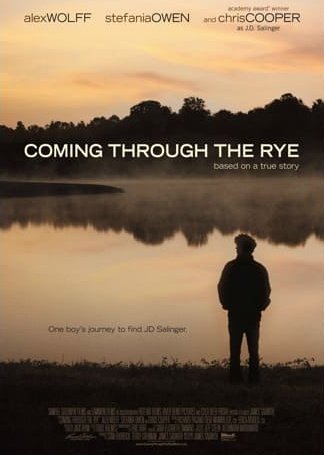The 10 Legal Steps All Filmmakers need is based on 23+ years’ experience as an attorney in contract law and litigation, as well as my work as an entertainment attorney and production counsel for film projects. While there are many legal aspects that filmmakers must know to complete a feature film, in my experience these 10 legal steps are the most important.
Article Written by Dori Zavala, Attorney & Filmmaker @ Open For Show Business
If you want investors to take you seriously, you must be serious about the legal issues surrounding your film. If your project isn’t legally protected, their money won’t be either (and they know it) which means they’ll be less inclined to give it to you. By learning and implementing these 10 legal steps, you’ll be able to confidently tell your investors that you are aware of and doing what is necessary to protect the project and their money.
10 Step Filmmaking Legal Checklist
- Form a Legal Entity
- Set Up the Business
- Document and Clear Chain of Title
- Set Up Your Business to Accept Investments
- Review Copyright Law Related to Your Film
- Protect Your Intellectual Property
- Obtain Releases
- Document Rights and Clearances
- Draft Contracts for Cast and Crew
- Obtain Insurance
- Open For Show Business (Dori Zavala, Our Recommended Entertainment Attorney)
You might be surprised to learn that there are legal and business issues that you need to consider during every stage of the filmmaking process from beginning to end. While you will still need a lawyer to advise on certain aspects, knowing the basics will help you to spot the issues and save you time and money in the long run. As the saying goes, “you don’t know what you don’t know.” Here are the 10 most important legal steps all filmmakers need:
1. Form a Legal Entity
Your film project should be treated as a business to appear more professional to investors as well as to protect you from liability. Each film is normally set up as a “business” and will have a name that is related to the film being made (e.g. the business set up to make the movie “Rocky” could have been called Rocky Movie, LLC). If you already have a production company, you will still need to set up a separate legal entity for this specific film project.
Set up a Limited Liability Company (“LLC”) for your individual film project, ideally in the state where you reside. Most states provide forms and instructions on how to do this on their government website.
More Info: Start a Film Production Company
2. Set Up the Business
Once you have an LLC set up, you’ll need a separate business bank account for the film funds as well as an Employer Identification Number (“EIN”) to pay vendors and employees.
- Apply for an EIN in the name of your LLC. This will enable you to open a business bank account and to pay your employees during production. You can apply online for free via the Internal Revenue Service’s website at: https://www.irs.gov/businesses/small-businesses-self-employed/apply-for-an-employer-identification-number-ein-online. Make sure to download the EIN letter provided at the end of the registration process, as you won’t have access to it again.
- Open a Business Bank Account: Take your proof of LLC filing and documents as well as your EIN letter to the bank of your choice to open a business bank account in the name of your LLC.
- If you have more than one member of your LLC, or if you are planning to take investments, you should also prepare an Operating Agreement which outlines the rules for the operation of the LLC, including voting rights, share ownership, and how/when you can close the LLC.
3. Document and Clear Chain of Title
Chain of Title is one of the most important legal issues for every indie filmmaker to understand as you won’t be able to distribute your film without it. Imagine you own a car and you hold the title. That would be your piece of paper evidencing your ownership of the car. In film, a chain of title evidences your film company’s legal ownership of the script as well as the completed film. See our: Filmmaker Legal Pack to ensure you have a Clean Chain of Title.
It is very easy, and unfortunately, too common, for filmmakers to disregard chain of title until the film is finished. This is a huge mistake. I’ve seen filmmakers invest an enormous amount of time and money into a film only to find out that the screenwriter didn’t give permission to use the script or there was a huge copyright violation. It’s better to realize and remedy any problems early in the process.
Distributors want “clean” projects, and they don’t want to deal with potential litigation. There are horror stories of indie filmmakers going out to festivals and getting offers from distributors. These distributors ask for proof of clear chain of title and the filmmaker doesn’t have it. All that time and money (and investors’ time and money) wasted! Don’t let this happen to you. Make sure that your film company owns every aspect of the script and story during development by ensuring you have a clear Chain of Title. More Info: Filmmaker Legal Pack
4. Set Up Your Business to Accept Investments
Accepting investments in your film is not as easy as you might think. Certain investments are regulated by federal and state law and there are specific requirements regarding what you are allowed to present and promise. You’ll want to always put everything in writing with any investments you accept so everyone is clear on what to expect and the risks involved. A Private Placement Memorandum (“PPM”) is a complex document that discloses many of these risks and expectations for film investors. You can purchase a Film Private Placement Memorandum (PPM) here that can be customized for your specific film project.
Before you accept any money from investors for your film, make sure that you are well aware of the ways in which you can seek financing and what you can and cannot say. For example, you do not want to make promises or guarantees to investors regarding a return on their investment. This can land you in hot water. In your pitch decks, PPM, or any other documents to investors, make sure that you clearly state that their investment is at risk and a return is not guaranteed.
FilmProposals offers customizable templates for Indie Film Pitch Decks and PPMs that have been used by real producers to obtain financing in the past. To ensure you have customized your templates correctly for your project, you can hire an expeienced entertainment attorney to review and advise you on your project and templates.
5. Review Copyright Law Related to Your Film
Just like Chain of Title, copyright law presents itself throughout all stages of the filmmaking process and failure to comply with it can doom distribution. A copyright is “ownership” of a creative work by the creator. A screenwriter will hold a copyright on her script. An artist will hold a copyright on his painting. An actor will hold a copyright in her performance. Anything that is created can be subject to copyright, meaning that it can be owned by someone else. The copyright is created at the time of creation of the work and does not have to be registered, although there are benefits to registering. A copyright holder can grant another person the right to use their copyrighted work or they can “assign” (i.e. transfer) their copyright ownership to another person or company entirely.
Copyright litigation is extremely expensive and does not require proof of intentional infringement. Potential copyright violations make distributors very, very nervous. During the development process, you will mostly focus on potential copyrights involving the script and story. If you are making a film about real people, it can be a good idea to get permission from them. Film Proposals offers a Life Rights Agreement as part of its Filmmaker Legal Pack. Later, you’ll need to consider copyright as part of the Rights and Clearance process (discussed below).
Copyright issues are one of the most important and complicated legal issues involved with making a film. It is advisable to consult with a knowledgeable entertainment attorney regarding your particular project.
Continue to Part II of our Filmmaker Legal List.
About the Author
This article was written by entertainment attorney, Dori Zavala of Open For Show Business. Please note that all information provided in this article is for informational purposes only, does not constitute legal advice, and does not create an attorney-client relationship. All readers are encouraged to consult with an entertainment attorney regarding the specifics of their unique film project.
FilmProposals Recommended Entertainment Lawyer
FilmProposals is thrilled to announce we have partnered with Dori Zavala, who offers a variety of filmmaker legal services, some designed just for FilmProposals Filmmakers. Dori is happy to work with our PPM Template and Legal Contracts. Dori is an award-winning attorney and filmmaker with over 23 years experience in the legal, business and finance fields. She is the founder of Open For Show Business, a revolutionary entertainment law and consulting practice that provides high-level strategic legal services and consulting to filmmakers to guide them in the business, legal and financing aspects of funding and distributing their films. Find out more at openforshowbusiness.com.

Related Articles:
- Film Investor Financing Templates
- Film Business Plan Services
- What is a Film Investor Agreement?
- What is an Independent Film Financing Plan?
- What is an Accredited Investor?
- Do You Need A Private Placement Memorandum?
Film Production Legal Contracts, Templates & Services
- Filmmaker Legal Pack
- Film Investor Financing Templates
- Film Private Placement Memorandum (PPM)
- Film Investor Agreement
- Script Purchase Agreement
- Deferred Compensation Agreement
- Shooting Location Request & Release Agreement
- Protecting the Chain of Title
- Filmmaker Legal Checklist (Part I)
- Filmmaker Legal List (Part II)
- Open For Show Business (Dori Zavala, Our Recommended Entertainment Attorney)
How to Work with Film Investors
Film Investor Guide
- Film Investor Ultimate Guide (For Filmmakers)
- Film Investor Primer (For Investors)
- 10 Things You MUST Do To Attract Film Investors
- Preparing for Film Investors
- Film Investor Business Plan Tips
- How to Find Film Investors
- Pitching to Film Investors
- Working With Film Investors
- Film Investor Tools & Templates
FilmProposals - 2025 Financing Toolkits & Bundles
DIY Toolkits, Legal & Finance Service Bundles
See All Financing Toolkits, Financing Bundles & Film Legal Packs
Gold Toolkit
DIY Templates- Financing Manual
- Financial Projections Template
- Business Plan Templates (Narrative & Documentary)
- Investor Agreement Outline
- Film Budget Template
- Indie Film Pitch Deck
- Custom Indie Film Database
- BONUSES (MPA Market Stats, Dealmaking, Investor Tips, ++ )
- Regular Price $303, Save $124
Gold Toolkit + Financials Bundle
Most Popular- Full Gold Toolkit
- + Professional Sales Projections & Investor ROI (10 Films)
- Regular Price $802, Save $103
Platinum Bundle
NEWEST!- Full Gold Toolkit
- + Professional Sales Projections & Investor ROI -10 Films (Reg $499)
- + Film PPM Investor Agreement (Reg $499)
- + Filmmaker Legal Pack (Reg $129)
- Regular Price $1430, Save $231
While our FilmProposals Bundles & Toolkits will save you hundreds of hours with prewritten text and templates and speed up your learning curve by showing you how to complete complicated financial projections, there is still a lot of information to process. We designed this FREE Film Business Plan Course to be sent once per week to break the process of writing your business plan into manageable pieces, and to keep you accountable and focused.
FilmProposals Tools and Templates
- Film Financing Bundles
- Film Financial Projections Template
- Film Business Plan Template
- Documentary Business Plan Template
- Film Financing and Investor Manual
- Film Budget Template
- Indie Film Pitch Deck
- Film Investor Agreement Outline
- Film Investor Tip Sheet
- Filmmaker Legal Pack
- Indie Film Database
- FREE Business Plan E-Course







